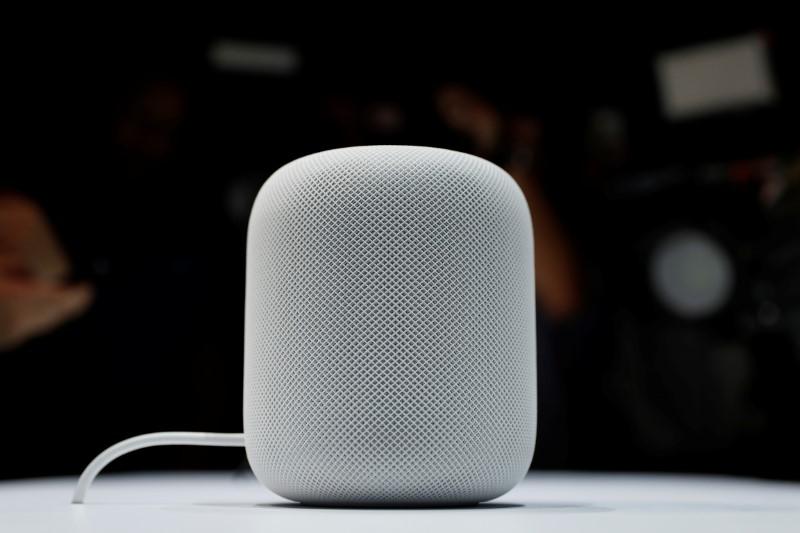
Apple has pushed the launch of its HomePod smart speaker to early next year from December, the company said on Friday, missing the holiday shopping season as the market for such devices becomes increasingly competitive.
“We can’t wait for people to experience HomePod ... but we need a little more time before it’s ready for our customers. We’ll start shipping in the US, UK and Australia in early 2018,” an Apple spokeswoman said via email.
Time Magazine lists iPhone X among the 'Best Inventions' of 2017
Apple introduced the voice-controlled HomePod in June. The speaker, which can make music suggestions and adjust home temperatures, takes aim at Amazon.com Inc’s Alexa feature and Echo devices.
Apple has forecast between $84 billion and $87 billion in revenue for the holiday - mostly driven by sales of its $999 iPhone X - so it’s unlikely that missing a few weeks of sales of its $349 speaker will affect its financial results, Bob O‘Donnell, founder of Technalysis Research, said.
The indirect effects will have a stronger negative impact, he said. Apple is working to keep its Siri voice assistant relevant in the face of competition from Amazon’s Alexa and Alphabet Inc’s Google Assistant, both of which are featured on smart speakers from those companies.
People use voice assistants more often on smart speakers than on phones, so even if owners of Amazon or Google speakers also have an iPhone, there’s a good chance that they’re talking to Alexa or Google Assistant as much or more than Siri.
“Last holiday season, smart speakers were huge, and this season they’re going to be huge,” O‘Donnell said. With Apple’s delay, “there will now be some people who make a different choice. The market’s getting more and more competitive.”
Apple is also counting on HomePod to boost subscriptions to Apple Music and block the rise of rival Spotify. Smart speakers from Google and Amazon let users give voice commands to play Spotify, but Apple Music does not work on the rival devices.
Apple’s main pitch for its HomePod smart speakers was superior audio quality, but that advantage appears to be slipping: Sonos, which also pitches its speakers’ audio quality for music lovers, now features support for the Alexa voice assistant.
Apple disputes Bloomberg report that it reduced Face ID accuracy
Earlier this year, Amazon announced the Echo Plus, a smart speaker with better audio quality, and Google confirmed to Reuters that its Home Max speaker with improved speakers will ship in December, though it has not given a specific date.
But Apple could still have a surprise or two in store. The company gave scant details about its speaker in June, leaving it room to announce exclusive music content or other unexpected features, said Brian Blau, an analyst with Gartner.
“When HomePod comes out, you’ll probably hear some great content from artists that are familiar and popular, and there’s probably going to be some other special aspects as well,” he said.

1717587923-0/jake-paul-vs-mike-tyson-(1)1717587923-0-165x106.webp)


1725443747-0/Untitled-design-(5)1725443747-0-165x106.webp)


1731652244-0/apple-(6)1731652244-0-270x192.webp)









COMMENTS
Comments are moderated and generally will be posted if they are on-topic and not abusive.
For more information, please see our Comments FAQ